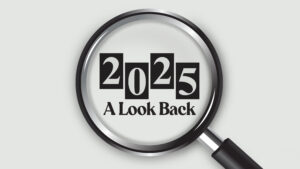While expense tracking is often considered a need for large corporations, the reality is that small businesses stand to benefit just as much, if not more, from robust financial oversight.
By utilizing best practices to streamline expense tracking for small businesses, you can more readily tackle financial challenges and manage your finances more efficiently.
In this article:
- Common Financial Challenges Faced by Small Businesses
- The Benefits of Expense Tracking
- Tools and Methods for Easy Expense Tracking
- Best Practices for Maintaining Accurate Records
Common Financial Challenges Faced by Small Businesses
Running a small business comes with unique financial pressures. Understanding these challenges is the first step toward addressing them. Here are some of the most common issues small businesses encounter:
1. Cash Flow Management
Cash flow is the lifeblood of any business. Small businesses often face erratic cash inflows and outflows due to irregular revenue cycles or delayed payments. A lack of cash flow visibility can lead to missed growth opportunities and even operational shutdowns.
2. Thin Profit Margins
Many small businesses operate on razor-thin margins, making them more susceptible to economic variability. Every dollar spent — from inventory to marketing campaigns — impacts the bottom line significantly. Wasteful spending due to poor tracking can erode these already tight margins.
3. Lack of Financial Expertise
Unlike larger companies that can afford dedicated finance teams, small business owners often add “bookkeeper” to their extensive list of responsibilities. This multitasking can lead to financial mismanagement, overlooked expenses, or inefficient budget allocation.
4. Tax Compliance and Reporting
Small businesses face complex tax obligations, varying by location and industry. Without accurate expense records, tax preparation becomes a daunting task. Poor compliance can result in penalties and complications during audits.
5. Limited Budget for Growth Initiatives
Unforeseen expenses, coupled with insufficient financial records, strain budgets reserved for hiring, innovation, or expansion efforts. This limits a small business’ ability to scale.
Proper expense tracking helps alleviate these issues, providing small businesses with greater clarity and control over their finances.
The Benefits of Expense Tracking for Small Businesses
Yes, expense tracking is a chore, but it’s also a powerful financial tool that positions small businesses for growth. Here are the major benefits:
1. Improved Financial Visibility
Tracking every expense helps small business owners gain a transparent view of where their money is going. This visibility can highlight areas of inefficiency or unnecessary spending.
Example: If high travel expenses are eating into revenue, small business owners can review travel policies or negotiate vendor discounts to cut costs.
2. Enhanced Decision-Making
With accurate data at hand, small businesses can make informed financial decisions. Whether it’s budgeting for a marketing campaign or hiring more staff, expense tracking ensures data-driven strategies.
3. Efficient Tax Preparation
Keeping organized expense records simplifies tax processes. Small businesses can easily categorize deductible expenses, saving time and lowering the risk of errors during tax season.
4. Cost Control and Savings Opportunities
When businesses understand their expense patterns, they can identify areas for cost reduction. For instance, analyzing recurring subscriptions or vendor contracts could reveal opportunities for renegotiation or elimination.
5. Scalability and Growth
Accurate finances provide a stable foundation for scaling operations. Investors and lenders often request detailed financial tracking before extending funding. Small businesses with clean records have greater credibility in such scenarios.
6. Compliance Confidence
Meticulous record-keeping reduces the likelihood of errors or regulatory violations. This is crucial for small businesses operating in heavily regulated industries like healthcare or finance.
By turning expense tracking into a strategic tool, small businesses can gain a competitive edge in their respective markets.
Tools and Methods for Easy Expense Tracking
You don’t need an accounting degree to keep your expenses in check. Modern tools and methods make it easier for small businesses to manage their finances efficiently.
Expense Tracking Tools for Small Businesses
1. Accounting Software
- Tools like QuickBooks, Xero, and Zoho Books are tailored for small businesses, providing expense tracking, invoicing, and analytics in one package.
- These systems sync with bank accounts and credit cards, offering real-time tracking for transactions.
2. Expense Management Apps
- Mobile apps such as Expensify or Wave allow entrepreneurs to capture receipts, categorize expenses, and track budgets on the go.
3. Cloud-Based Solutions
- Platforms like FreshBooks store data in the cloud, ensuring it’s accessible from anywhere. Many also offer integrations with CRM or payroll systems.
4. AI-Powered Insights
- PlanGuru, Fathom, and other services leverage AI to offer advanced reporting and predictive analytics, enabling small businesses to forecast expenses accurately.
Manual Methods
While tech-based solutions are efficient, some small businesses may prefer traditional methods:
- Spreadsheets: A customizable solution for those comfortable with Excel or Google Sheets.
- Expense Journals: Paper-based tracking is still a viable option for businesses with minimal expenses, though it requires more manual effort.
No matter the method or tool, consistency is key to maintaining reliable financial records.
Best Practices for Maintaining Accurate Records
To fully leverage the power of expense tracking, small businesses should adopt these proven best practices:
1. Record every expense.
Capture every transaction, no matter how small. Those $5 office supply runs might seem negligible but can add up over time.
2. Set guidelines for expense categorization.
Establish clear categories such as “Marketing,” “Utilities,” and “Travel.” Consistent categorization ensures clarity and prevents confusion during audits.
3. Streamline receipt management.
Digitize and store receipts using tools like Dext or Expensify. Label and categorize them immediately to avoid last-minute scrambles during tax season.
4. Conduct monthly reviews.
To stay on top of cash flow, schedule monthly reviews of your financial records. Identify which expenses align with business goals and trim unnecessary costs.
5. Separate business and personal expenses.
Always maintain separate accounts for your business. Combining personal and business finances complicates both tracking and tax filing.
6. Leverage automation.
Automate recurring payments and data entry wherever possible. Features in platforms like QuickBooks or Xero can save significant time and effort.
Expense Tracking Empowers Small Businesses for Success
Accurate tracking is a necessity for small businesses seeking long-term growth and stability. Start small by implementing basic tracking practices and gradually incorporate more advanced tools as your business grows. And, as always, it’s important to consult with your accountant or a financial expert to ensure you’re on the right track for your business’ individualized needs.






